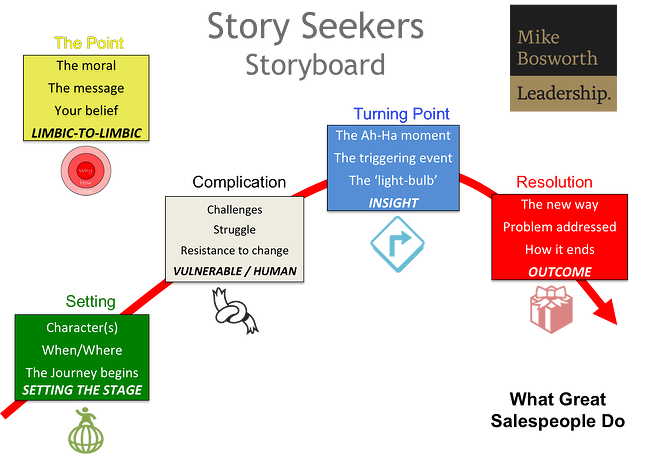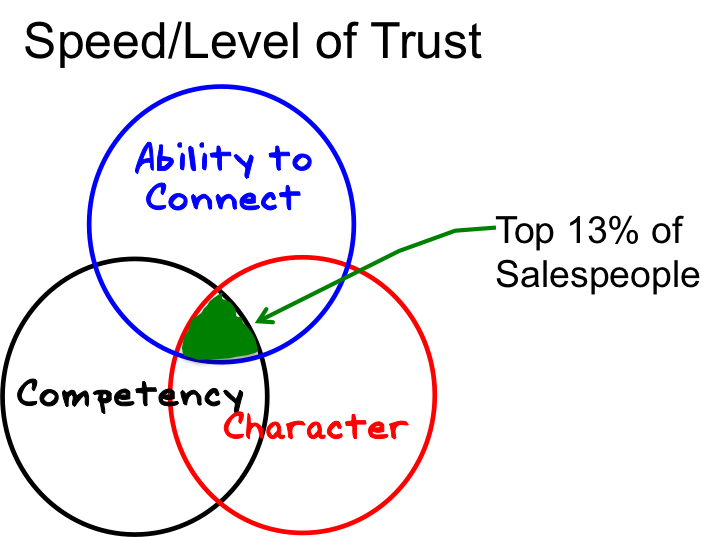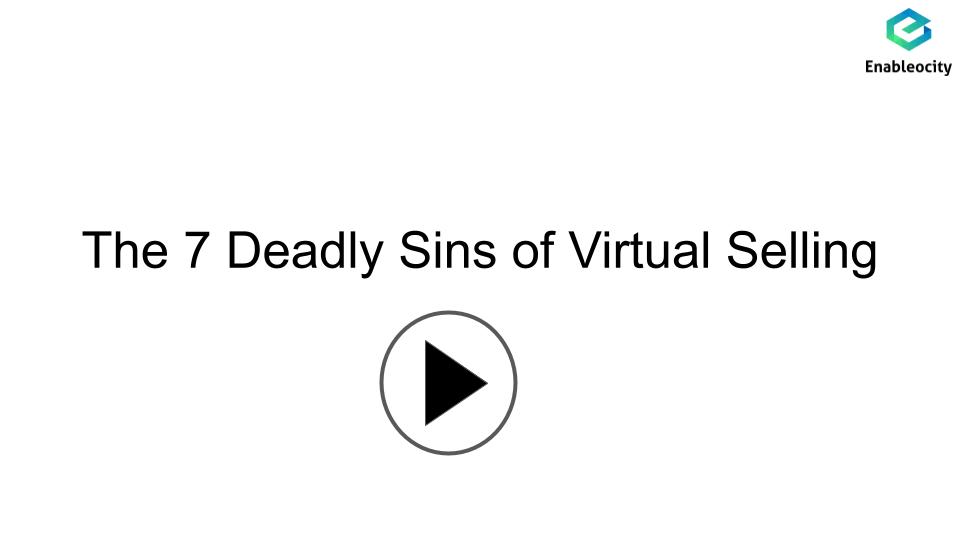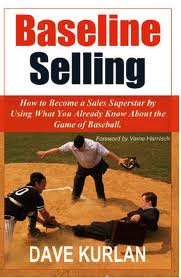Earlier this month, I immersed myself in two and a half days with Mike Bosworth in his Story Seekers workshop and was once again reminded of what makes great salespeople great - their ability to connect emotionally with buyers and to truly listen.
I cannot easily summarize the 2.5 days in 600 words, but I can give you a couple of core ideas.
I've been a Mike Bosworth fan since I read Customer-Centric Selling in January 2005, but I had not read his prior work, “Solution Selling” published nearly 30 years ago, based on his experiences at Xerox and involvement in the SPIN project. Mike was one of the most successful reps in Xerox history at the time and gained much experience in selling, managing and training salespeople before most of us started our sales careers.
While reading his latest book, co-authored with Ben Zoldan, entitled, "What Great Salespeople Do", I could feel myself nodding as I could either see myself in the stories, or agreed with his ideas and training philosophy.
One of Mike’s startling revelations in the opening of the training course is that after nearly 30 years of sales training in both Solution Selling and Customer-Centric Selling (and most of the other mainstream sales methodologies), not much has changed for the bottom 80% of the sales force, who sell 20% of the revenue.
The outcome of these training courses was that the best salespeople got better from using the techniques and processes, but the core group typically stopped using the techniques within a month or two of the training and reverted to prior behavior. Mike points out that in fact the old 80/20 rule is no longer true in fact it’s now 13% of salespeople selling 87% of the business. (Sales Benchmark Index)
Why?
The answer to this question is not masterful use of the CRM system; adherence to the 9-box questioning model, or the number of connects per day or the ability to dazzle with presentation and demonstration skills. These are table stakes in the old process oriented, logical “left-brain” training paradigm for sales professionals.
It turns out that great salespeople are able to forge strong emotional connections with buyers, either through a natural or learned ability to quickly create rapport, listen empathically and connect emotionally with buyers, typically through story.
Top salespeople are able to connect emotionally with buyers quickly, which the Franklin-Covey organization refers to as “speed of trust”. This is one of the most critical skills in today’s buyer-seller relationship, where the salesperson’s “at-bat” opportunities are fewer and meeting duration is shorter. 
Status-quo thinking with sales leaders is that right-brained empathy and rapport skills can’t be taught. “It’s too touchy-feely for our hard-bitten sales team” We are looking for sales leaders who are willing to challenge that belief, who understand that these skills are probably the most important and most underdeveloped in the core group.
Storytelling is as old as mankind and no one ever turns down an opportunity to hear a good story. When you tell a story and expose your vulnerability in the process, you invoke a reciprocal emotion in the listener and create an opportunity to tend (draw out) the other-person’s story and this is what builds trust. This is not a story about how great you are as a salesperson; how big your company is, or how wonderful your products are. These are the stories most salespeople are telling today to buyers who haven’t asked to hear them - most of the time.
Truly listening to the other person, reflecting their words and emotions, (without thinking about what you are going to say next, interrupting, mentally counting the commission, or trying to qualify in or out), is a skill and it can be learned and mastered with deliberate practice.
Mike used an expression “premature elaboration” to describe how salespeople - who are experts in their field and familiar with the buyer situation are too keen to tell the buyer what they need.
Neil Rackham created an expression that still holds true today as a result of his research in the SPIN project.
EXPERTISE + ENTHUSIASM = ENEMY.
This is premature elaboration and most of us in sales have been guilty of it at some point in our careers. If you put yourself on the buyers side of premature elaboration, it feels like you're being told and then sold and that's what gives salespeople a bad name. Learning to truly listen and tend the buyers story will help you to learn more about the buyers issues before you offer your solution.
The Story Arc
We created and learned to tell three stories in the workshop;
- Who Ive helped,
- Who I am,
- Who I represent,

All stories we created follow a similar story arc and we used this story format to tend the stories of others. On the evening of the 2nd. day, our homework assignment was to call someone we love and ask them a question and tend their story using the skills we had learned in class and the story arc to help tend the conversation. I called my 17 year old daughter, Olivia and we had a conversation for about 40 minutes, unlike any we had had before.
We are looking for early adopters in sales leadership willing to pilot a Story Seekers Storytelling workshop for struggling reps who they would hire again (competent + character).
Join us for a live Storytelling Webinar with Mike Bosworth





